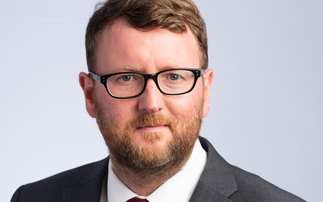It's hard to think of a time when the trustees of defined contribution occupational pension schemes (DC OPS) have been under more pressure.
Automatic enrolment has brought millions of new members and billions of pounds of assets into DC OPS and with so much at stake, the Department for Work and Pensions (DWP) and The Pensions Regulator (TPR) have been keen to ensure that schemes are well run.
There aren't many people who could reasonably question whether the role of governance is crucial in an environment where scheme members often lack the time, knowledge, or inclination to manage their pension benefits themselves, or the funds to pay for individual advice.
Regulatory focus on master trusts seems to have achieved its aim. Close supervision by TPR should deliver exemplars of good governance, and good outcomes for members - but what about those members who aren't invested in a master trust?
Single employer OPS may be dwarfed by master trusts in terms of the number of members, but they still hold £107.5bn in benefits for 5.8 million members - which is close to three times the funds held in master trusts. Most of these members are in well-run and well-resourced schemes that provide good outcomes for their members. However, TPR's data has consistently shown that trustees operating smaller schemes are often failing to satisfy key governance requirements. This is potentially putting members' savings at risk and is the problem new regulation is seeking to address.
So, what's on the "must do" list for trustees?
1: The Pensions Regulators' single code of practice. While some of this is a more concise expression of the TPR's existing expectations, there is some new content. A key addition is the requirement for trustees to operate an effective system of governance (ESOG). This means documenting policies and processes, as well as operating them. Those schemes with over 100 members also need to carry out an annual own risk assessment (ORA) of their governance.
The effective date of the code isn't known, but what TPR make clear is that the ORA will be a "substantial process" and a trustee board "may need to expand its risk assessments to fulfil TPR expectations"[i].
2: The risks presented by climate change and the transition to a low carbon economy - which should neither be underestimated or ignored. While most DC schemes won't need to produce a Taskforce on Climate-related Financial Disclosures (TCFD) report, all trustees will need to ensure they're taking the full range of investment risks into account. Policies within the statement of investment principles and evidence within the Implementation Statement aren't about tick-box compliance, they're part of an essential activity to protect member returns as we approach an industrial and social revolution.
3: The annual assessment of value for members. This is, perhaps, a distillation of the governance carried out by trustees. We're expecting final regulations to be published very soon, but if implemented as proposed, the trustees of all schemes with less than £100m in assets will need to carry out an annual assessment of the value offered by their pension scheme, compared to three large schemes. The assessment is based on charges, net returns, and an assessment of governance activity against a range of expectations. Trustees will need to be honest in their assessment of whether they pass the test.
Few trustee boards will have the range of in-house expertise, and the time, to satisfy this ever-expanding workload on their own. Most will require advice from a range of advisers which could result in capacity issues for those who leave things late. A large number of schemes are going to need to complete their first value for money assessment, and possibly their ORA, by the end of October 2022, creating potential pinch points in terms of the availability of advice, and experienced resource to deliver agreed solutions.
While ongoing trustee costs could be set to soar with the requirement to carry out an annual ORA and value for members assessment, it's clear that the DWP expects a number of trustees to conclude that another scheme might be able to offer their scheme members better value, and wind their scheme up. This is another area where advice will be required, not only to help choose the most suitable solution, but to manage the transition of members and assets.
If trustees haven't done so already, "build a plan for compliance with the new rules" and "secure funding for advice" should be at the top of the agenda for their next trustee meeting. Neither "do nothing" or "do more with the same" are realistic options if we're looking to deliver the very best outcomes for members.
[i] https://www.thepensionsregulator.gov.uk/-/media/thepensionsregulator/files/import/pdf/response-form-2-governing-body-section-of-new-code-of-practice.ashx







